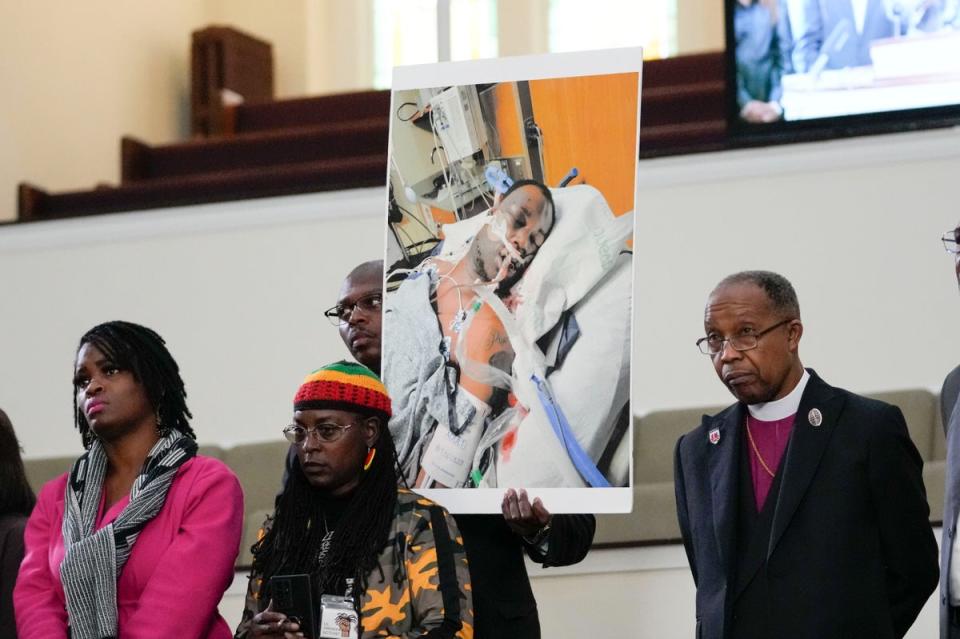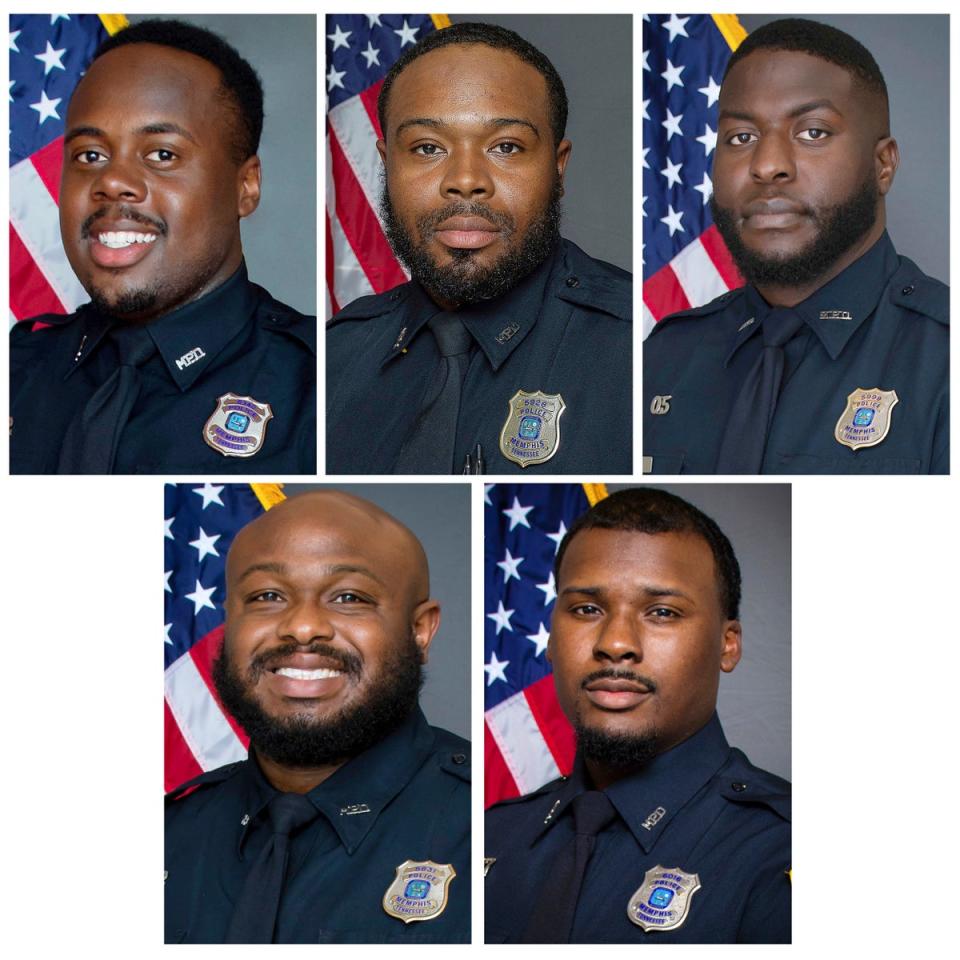Five US policemen charged with killing black father Tyre Nichols in Memphis

Five former Memphis police officers were charged on Thursday with the murder of Tyre Nichols, a black man who died three days after a traffic stop.
Mr Nichols, a 29-year-old father, died in a hospital on January 10, three days after sustaining injuries during his arrest by the five police officers.
Officials are expected to release bodycam footage of the traffic stop on Friday evening.
“We're here today because of a tragedy that wounds one family deeply but also hurts us all," Shelby County district attorney Steve Mulroy said at a news conference.
The five officers, who are all black, have been charged with second-degree murder, aggravated assault, aggravated kidnapping, official misconduct and official oppression, Mr Mulroy said.

The Memphis Police Department on Friday identified them as Tadarrius Bean, Demetrius Haley, Emmitt Martin III, Desmond Mills, Jr and Justin Smith, who are aged between 24 and 32. Each had served with the department for about two to five years.
They were dismissed from the force last Saturday for violating multiple departmental policies, including using excessive force, failing to intervene and failing to render aid. They were taken into custody on Thursday morning, county jail records showed.
After Mr Nichols was stopped in his vehicle, there was “an altercation” in which officers used pepper spray on the victim, Mr Mulroy said, after which he fled on foot.
“There was another altercation at a nearby location at which the serious injuries were experienced by Mr Nichols,” Mr Mulroy said. The initial Memphis Police Department statement about the death had said an ambulance was called because Mr Nichols “complained of having a shortness of breath” and that he was taken to hospital in critical condition.
Mr Mulroy said he would not comment on the legality of the initial traffic stop. He said the investigation would continue and he would not rule out additional charges.

David Rausch, the director of the Tennessee Bureau of Investigation, said at the news conference he was sickened by what he saw in the police body-worn camera videos.
“What happened here does not at all reflect proper policing," he said. "This was wrong. This was criminal.”
Attorneys for the five former officers were due to address reporters later on Friday afternoon.
Two Memphis Fire Department employees involved in the response were relieved of their duties during an investigation, a department spokesperson said earlier this week.

Other Memphis officers remain under investigation for policy infractions, Memphis Police Chief Cerelyn Davis said on Wednesday. In a video posted on YouTube, she asked for calm when the bodycam footage is made public.
“I expect you to feel what the Nichols family feels. I expect you to feel outrage in the disregard of basic human rights,” she said. “I expect our citizens to exercise their First Amendment right to protest, to demand action and results, but we need to ensure our community is safe in this process.”
Several cases of police officers using excessive force on Black people in the United States over the years have been condemned by the public and led to calls for changes in policing.
Protests broke out globally following the May 2020 killing of George Floyd, a Black man who died after a white Minneapolis police officer knelt on his neck for more than eight minutes, as well as other deaths during encounters with police officers.


